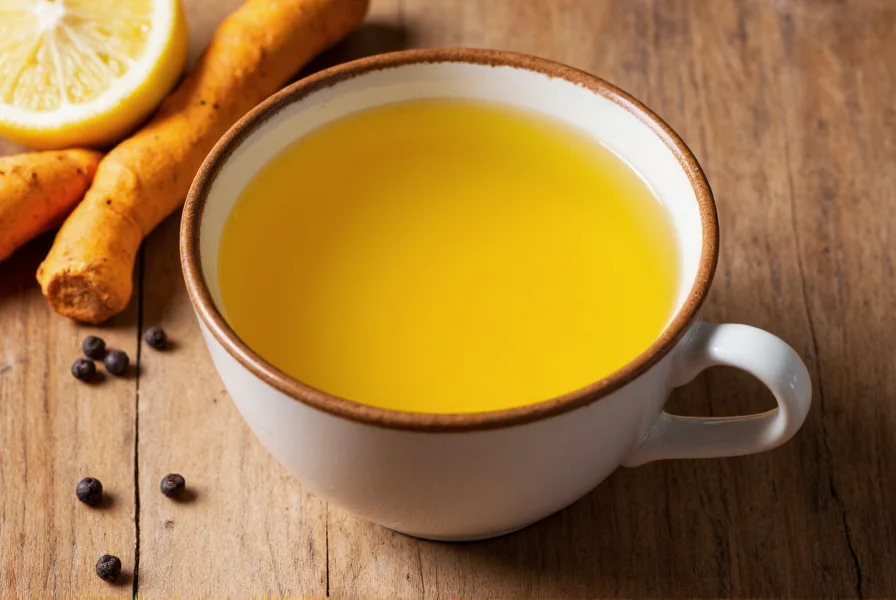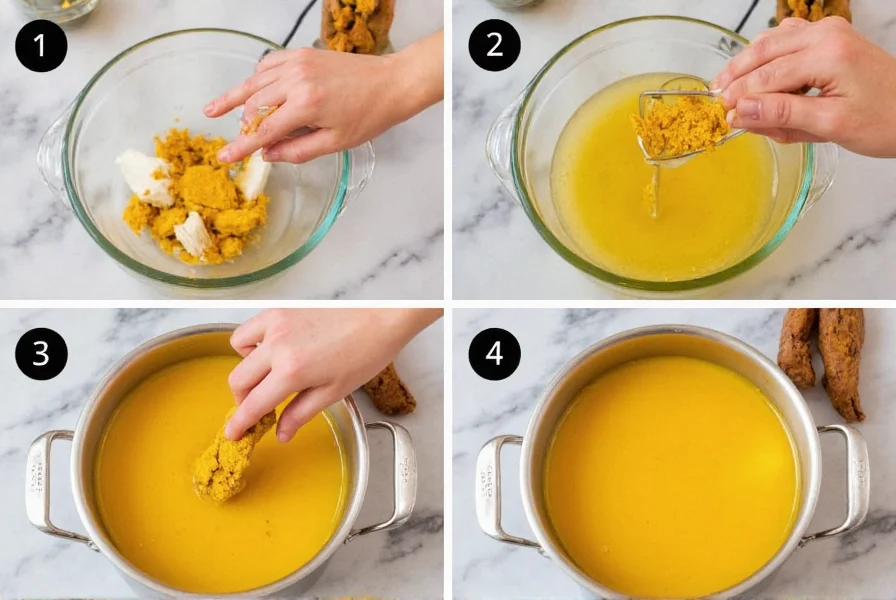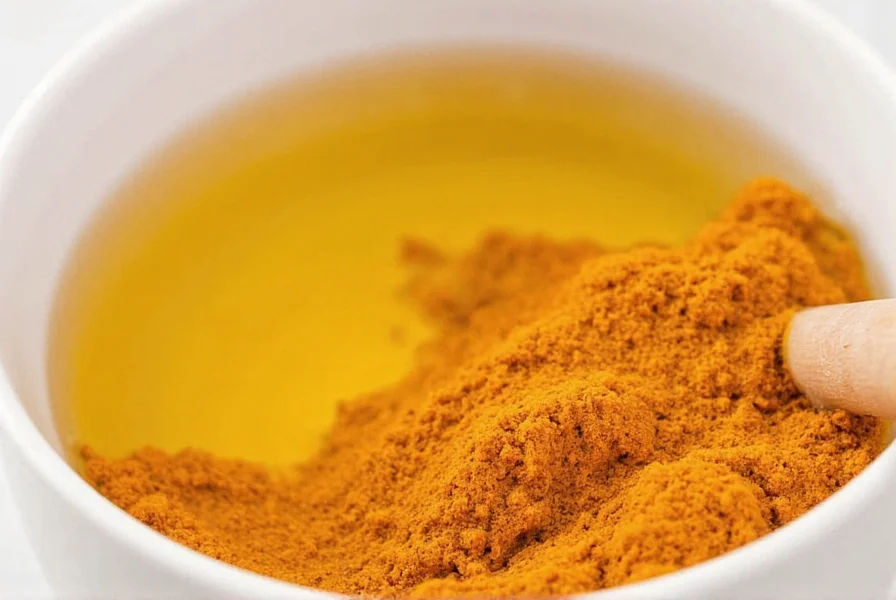For those seeking natural approaches to managing inflammation, turmeric tea has gained significant attention in both traditional medicine and modern research. This golden-hued beverage, rooted in Ayurvedic practices for thousands of years, contains curcumin—the primary bioactive compound responsible for turmeric's potent anti-inflammatory effects. Understanding how turmeric tea works for inflammation requires examining the scientific evidence behind curcumin's mechanisms and practical considerations for maximizing its benefits.
The Science Behind Turmeric's Anti-Inflammatory Properties
Curcumin, turmeric's most studied component, demonstrates remarkable anti-inflammatory capabilities through multiple biological pathways. Research published in the Journal of Medicinal Food reveals that curcumin inhibits key inflammatory molecules including NF-kB, cytokines, and enzymes like COX-2—similar to how some pharmaceutical anti-inflammatories work, but without the same side effect profile.
Unlike conventional NSAIDs that primarily target symptoms, curcumin addresses inflammation at the molecular level. A comprehensive review in Advances in Experimental Medicine and Biology analyzed over 700 studies, concluding that curcumin's multi-target approach makes it particularly effective for chronic inflammatory conditions. However, the same research highlights curcumin's poor bioavailability—a challenge that proper tea preparation can partially overcome.

Evidence from Clinical Research
Multiple clinical trials support turmeric's anti-inflammatory effects, though results vary based on formulation and delivery method. A 2016 study in the Journal of Medicinal Food found that 400mg of curcumin daily reduced inflammatory markers in osteoarthritis patients as effectively as 1,200mg of ibuprofen—but with fewer gastrointestinal side effects.
When examining turmeric tea specifically, research becomes more nuanced. A 2020 review in Nutrients analyzed various curcumin delivery methods, noting that:
| Delivery Method | Average Bioavailability | Effective Dose Range | Research Support |
|---|---|---|---|
| Plain Turmeric Powder | 1% | 500-2000mg | Limited |
| Turmeric Tea (basic) | 2-3% | 500-1000mg | Moderate |
| Turmeric Tea (with black pepper & fat) | 20-30% | 250-500mg | Strong |
| Curcumin Supplements | Up to 185x | 80-500mg | Strongest |
The research clearly indicates that how you prepare turmeric tea significantly impacts its effectiveness. Simply steeping turmeric powder in hot water provides minimal benefits due to curcumin's poor solubility and rapid metabolism.
Maximizing Turmeric Tea's Anti-Inflammatory Benefits
Creating truly effective turmeric tea for inflammation requires understanding the science of absorption. Here's what research shows works best:
Essential Preparation Techniques
Fat inclusion: Curcumin is fat-soluble. Adding healthy fats like coconut oil, almond milk, or ghee increases absorption by up to 30%. A study in the European Journal of Nutrition demonstrated that consuming curcumin with fats significantly elevated blood levels compared to water-based preparations.
Black pepper addition: Piperine in black pepper enhances curcumin absorption by up to 2,000%. Just 1/20th of a teaspoon of black pepper can dramatically improve bioavailability, as confirmed by research in Planta Medica.
Heat activation: Simmering turmeric in liquid for 10-15 minutes (rather than just steeping) increases curcumin extraction. However, avoid boiling for extended periods as this may degrade some beneficial compounds.

Realistic Expectations for Turmeric Tea and Inflammation
While promising, it's crucial to understand turmeric tea's limitations for inflammation management. Research indicates:
- Effects are typically noticeable after 4-8 weeks of consistent daily consumption
- Best results come from combining turmeric tea with other anti-inflammatory lifestyle factors
- It works as a complementary approach, not a replacement for medical treatment in serious conditions
- Individual responses vary significantly based on genetics, gut health, and inflammation type
A 2022 meta-analysis in Phytotherapy Research concluded that while curcumin shows significant anti-inflammatory effects, "the magnitude of benefit is generally modest compared to pharmaceutical interventions for acute inflammatory conditions." For chronic, low-grade inflammation, however, regular turmeric tea consumption may provide meaningful support.
Safety Considerations and Potential Interactions
Turmeric tea is generally safe for most people when consumed in culinary amounts, but certain precautions apply:
- Blood thinning: Curcumin has mild anticoagulant properties. Those taking blood thinners should consult their doctor before regular consumption
- Gallbladder issues: Turmeric may stimulate bile production, potentially worsening gallstone conditions
- Iron absorption: High doses may interfere with iron absorption in susceptible individuals
- Pregnancy: While culinary amounts are safe, therapeutic doses should be avoided during pregnancy
The Arthritis Foundation recommends limiting turmeric intake to 500-1,000mg of curcumin twice daily from all sources, including tea. This typically translates to 1-2 cups of properly prepared turmeric tea daily for inflammation support.
When Turmeric Tea Isn't Enough
While turmeric tea can be a valuable component of an anti-inflammatory lifestyle, certain situations require medical attention:
- Sudden, severe inflammation or pain
- Symptoms that significantly interfere with daily activities
- Signs of infection (fever, redness, warmth)
- No improvement after 8-12 weeks of consistent use
Inflammation serves important biological functions, and completely eliminating it isn't desirable. The goal should be managing excessive or chronic inflammation while preserving the body's natural healing processes. Turmeric tea works best as part of a comprehensive approach that includes proper nutrition, stress management, quality sleep, and appropriate medical care when needed.











 浙公网安备
33010002000092号
浙公网安备
33010002000092号 浙B2-20120091-4
浙B2-20120091-4